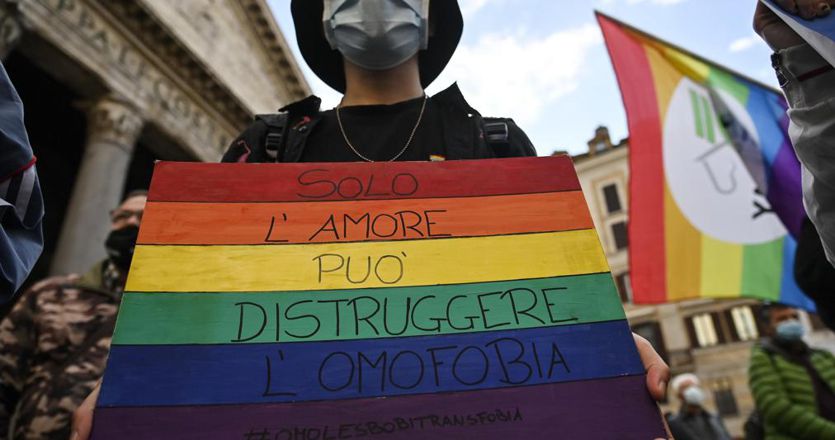For the Democratic Party it must be approved at all costs. For the Lega and for Italy alive, at least three articles must be worked out to carry it forward. After the summer and the administrative elections in the big cities, the back and forth on the Zan Ddl, the bill against homotransphobia, has reopened. A text alc within a push and pull between the parliamentary groups made up of rebounds, resistance, pressing and calls to hurry, which sees the majority split between those who speak of mediation and those of beheading. Approved on November 4, 2020 by the Chamber, the Zan bill had a difficult landing in the Senate, where it remained stalled for months and was then exhumed from the drawers of the Justice Commission of Palazzo Madama and scheduled for April 28 2021 – with 13 yes and 11 no – after five months of discussions, postponements and brakes. Which continued in the following months as well.
Text to be changed for the Vatican
In June, the Vatican formally asked the government to modify the Zan Bill which, according to the Secretariat of State, would violate “the agreement to revise the Concordat.” The square on a new text was not found and the bill, buried by a shower of amendments, ended up directly in the classroom. Where the continuation and conclusion of the general discussion is scheduled for 27 October. Then there will be the two votes on the request of the Lega and Fdi not to move on to the discussion on the articles.
Letta’s opening
The opening of the leader of the Democratic Party arrived at the show “Che tempo che fa” Enrico Letta. On the Zan law, he said, “we have a duty towards our society, we must carry it out and approve it”. And he announced that he will ask Alessandro Zan “to make an exploration with the other political forces to understand the conditions that could lead to a rapid approval of the text”. It is open to changes «as long as they are not substantial things, but I trust Zan. On the basis of what he will say, I am sure that the text will be approved quickly ».
Zan: “Decisive days”
Alessandro Zan, the first signatory of the bill, thanked Letta “for the trust and commitment”, then entrusted his thoughts to a tweet: “These are decisive days to approve a law against hate crimes. We will do our best, it is a duty of civility towards the country ». “Here we are, ahead on the path of rights and against hate crimes”, the vice president of the Senate and Head of Justice and Rights of the Democratic Party wrote on Twitter. Anna Rossomando. Per Franco Mirabelli, deputy chairman of the senators of the Democratic Party «non-substantial changes yes, upheavals no. This is the position of the Democratic Party that wants to approve a law of civilization. For this Wednesday (October 27, ed) it is important to conclude the general discussion and vote against the request of the right not to move on to the discussion on the articles. The process must continue in order to arrive quickly at the approval of a law that exists in all other European countries. Those who vote in favor of non-passage to the articles want to bury the law, those who consider it important and want to approve it, perhaps with changes, will vote against the request of the right ”.
Renzi: “Without a compromise not even civil unions would have been made”
On October 27 in the Senate there is a vote and there is the problem of snipers. There are 18 votes from Italy alive to tip the balance. “There are points of the Zan bill,” he said Matteo Renzi – in which there is no consensus, not only on the part of Catholics, but also on the part of the CGIL and feminists. If you change the text in 15 minutes you take the result home, you agree on the times in the Chamber ». To close, Renzi said, «we must accept a principle of civilization: there is no electoral campaign on rights. Agreements must be found to make the laws, not the proclamations to wave the flags ». And he remembers that “without a compromise not even civil unions would have been made.”
